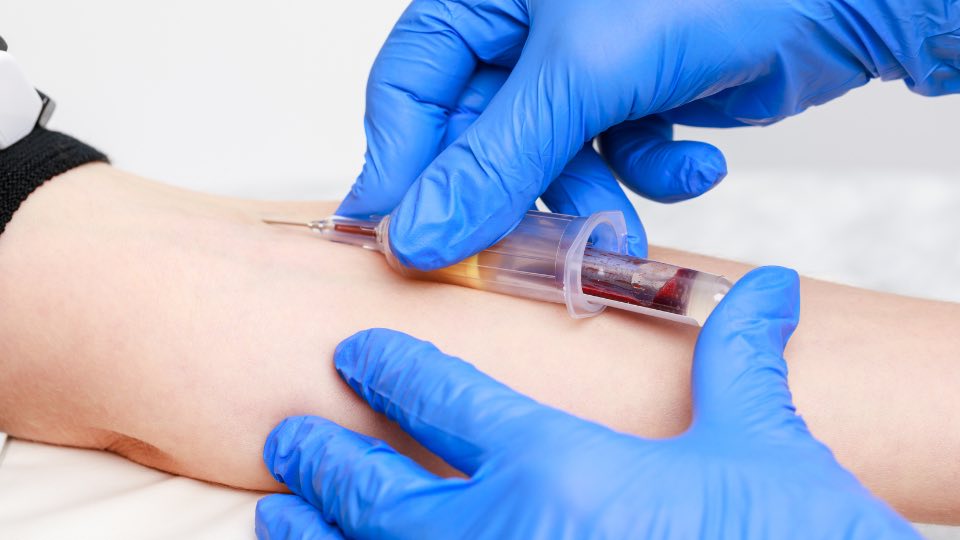How to Talk to Teens About STIs and Personal Safety
Having open and honest conversations with teenagers about sex, personal safety, and sexually transmitted infections (STIs) can feel daunting—but it’s one of the most important steps a parent or guardian can take to ensure their child grows up informed, confident, and safe. With widespread misinformation online and among peers, young people often hold misconceptions about what puts them at risk.
One common question we hear at our pharmacy is: can you get HIV from kissing? It’s the perfect example of how confusion and stigma can thrive in the absence of clear, age-appropriate education.
In this guide, we’ll explore how to approach conversations about intimacy, consent, and STI prevention with your teen. We’ll also highlight our discreet and confidential STI testing service, available to young adults and parents seeking reliable support.
Why These Conversations Matter
Teenagers today are exposed to a vast range of information—some of it helpful, much of it misleading. Without guidance from trusted adults, they may turn to friends, social media, or the internet for answers to serious questions about sex and health.
Creating a safe space for discussion builds trust and encourages teens to come to you with their concerns. It also helps normalise healthy sexual behaviour, boundaries, and consent.
Start with the Basics: Consent and Respect
Before discussing infections and protection, it’s essential to talk about consent. Teach your teen that:
-
–> Consent must be freely given, informed, and enthusiastic
-
–> They always have the right to say no, even if they’ve said yes in the past
-
–> Consent applies to all intimate contact, not just sex
Framing these conversations around mutual respect lays a solid foundation for discussing physical relationships in a mature and thoughtful way.

Introducing STIs: Facts Over Fear
Once the groundwork is laid, you can begin discussing STIs with a focus on facts rather than fear. Let them know:
-
–> STIs are common and can affect anyone who is sexually active
-
–> Many infections, such as chlamydia and gonorrhoea, often have no symptoms
-
–> Regular testing is a normal part of looking after your health, like going to the dentist or GP
Be sure to mention a range of infections, including:
-
–> Chlamydia
-
–> Gonorrhoea
-
–> Syphilis
-
–> Genital herpes
-
–> HPV (human papillomavirus)
-
–> HIV
Each of these can be managed or treated effectively when caught early, which is why testing and protection matter.
Can You Get HIV from Kissing?
This is a question we often hear from both teens and adults: can you get HIV from kissing? The short answer is no.
HIV is not spread through saliva, and casual or deep kissing does not transmit the virus. The virus is mainly passed on through:
-
–> Unprotected sexual intercourse
-
–> Sharing needles or injecting equipment
-
–> Blood transfusions (extremely rare in the UK due to screening)
-
–> From mother to child during childbirth or breastfeeding
Kissing, hugging, sharing drinks, or using the same toilet are not ways HIV is transmitted. Clearing up these myths helps young people feel more confident and less anxious about relationships, while also reinforcing what does pose a real risk.
Talking About Protection and Testing
It’s important to introduce your teen to the idea of barrier protection, such as condoms, which reduce the risk of most STIs. Encourage them to:
-
–> Use condoms consistently and correctly
-
–> Get regular check-ups if they become sexually active
-
–> Speak to a GP, nurse, or pharmacist about birth control and STI testing
Remind them that being tested for STIs is not something to be ashamed of—it’s a responsible and healthy action.
At our pharmacy, we offer a confidential STI testing service that’s ideal for young adults who may not feel comfortable going to a GP or clinic. We provide a welcoming, judgement-free environment and can advise on treatment, protection, and next steps. Book an appointment today.

Tips for Parents: Making the Conversation Easier
Pick the right time – Choose a moment when you’re relaxed and not likely to be interrupted
Be honest – If you feel awkward, say so; it often puts teens at ease
Use media as a springboard – News stories, TV shows, or online content can open the door to meaningful discussions
Keep it ongoing – This isn’t a one-time conversation. Revisit topics as your child grows and their relationships evolve
Discreet Support and Advice
Talking to your teen about STIs, consent, and sexual health can feel challenging, but it’s one of the best ways to prepare them for safe and respectful relationships. Addressing questions like can you get HIV from kissing allows you to correct misinformation and guide your teen with compassion and clarity.
If your child—or you—have concerns about STIs, our team is here to help. Reach out or visit our STI testing service for discreet support and trusted advice from our experienced pharmacy staff.
Let’s empower the next generation with facts, not fear.
This blog was written on behalf of Midnight Pharmacy by Pharmacy Mentor.

